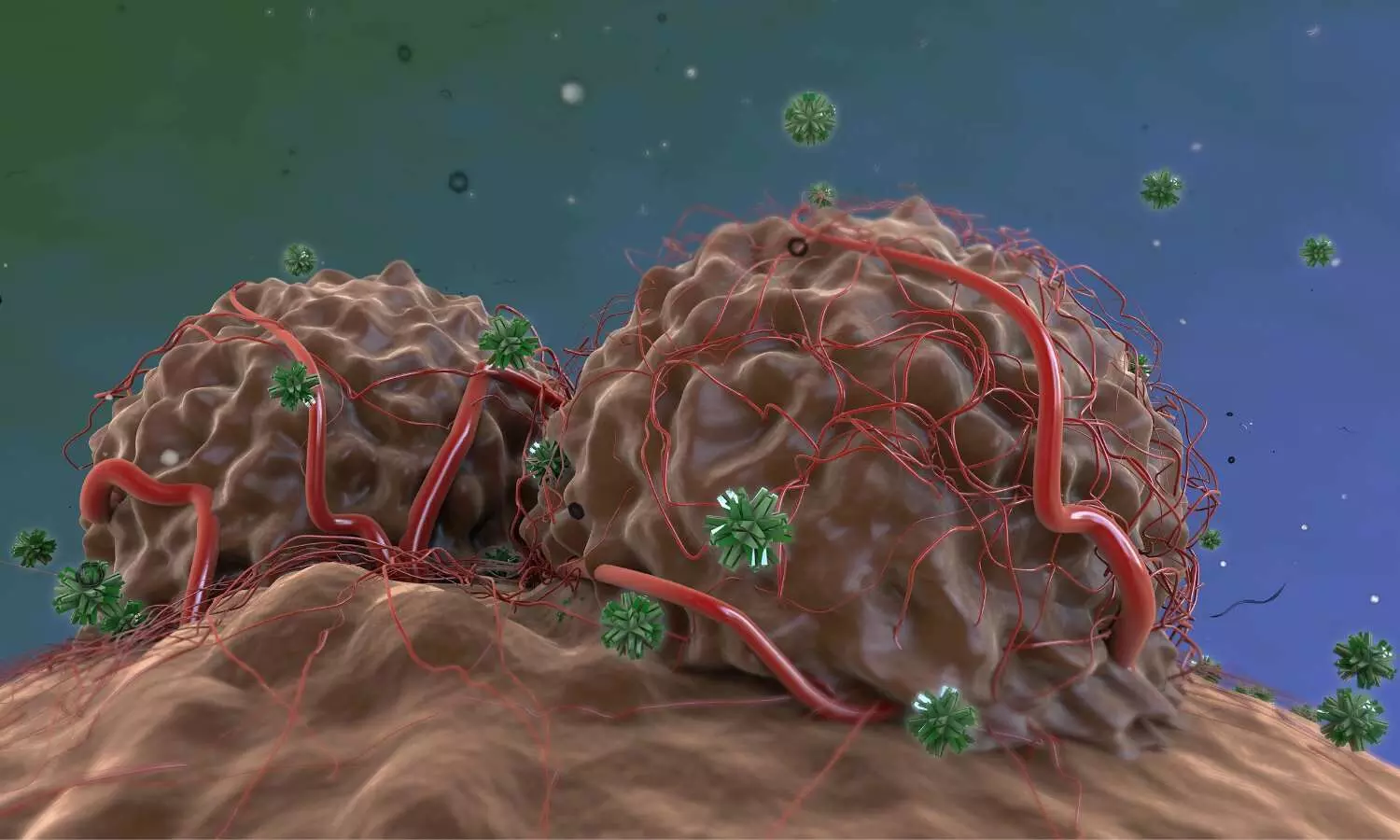Belzutifan Shows Promising and Durable Antitumor Activity in Advanced Pheochromocytoma or Paraganglioma: NEJM
- byDoctor News Daily Team
- 26 October, 2025
- 0 Comments
- 0 Mins

A new study published inThe New England Journal of Medicinereported that the HIF-2α inhibitor belzutifan has shown significant and lasting antitumor activity in patients with advanced pheochromocytoma and paraganglioma, two rare neuroendocrine cancers usually challenging to treat when metastatic. The research stated that belzutifan provided extended disease control and decreased antihypertensive medication requirements in a lot of patients, which makes it a promising agent against these rare cancers. The study was conducted by Camilo J. and colleagues. Pheochromocytoma and paraganglioma are unusual neoplasms that originate in chromaffin cells of the adrenal medulla and extraadrenal paraganglia, respectively. In their metastatic presentation, the tumors are generally fueled by dysregulation of the HIF-2α signaling pathway, which causes uncontrollable cell growth and resistance to standard treatment. Traditionally, therapeutic choices for advanced disease have been restricted to surgery, chemotherapy, or radiopharmaceuticals, each with low efficacy and high toxicity. Belzutifan, an oral small-molecule HIF-2α inhibitor, has demonstrated clinical activity in other HIF-driven tumors, including renal cell carcinoma, and thus, interest in its role in treating these uncommon endocrine malignancies was raised. This phase 2, global, single-group trial enrolled 72 patients with locally advanced or metastatic pheochromocytoma or paraganglioma who were not surgery or curative treatment candidates. All patients received belzutifan 120 mg orally once a day. Patients were treated until disease progression, unacceptable toxicity, or withdrawal by the patient. The major endpoint was the confirmed objective response rate (complete or partial response) by blinded independent central review. Secondary and of particular interest were duration of response, disease control rate, progression-free survival (PFS), overall survival (OS), safety, and antihypertensive medication use changes. The median follow-up time was 30.2 months (range, 23.3–37.6 months). The trial proved that 26% of patients had a confirmed objective response (95% CI, 17–38), and 85% (95% CI, 74–92) realized disease control. The 20.4-month median duration of response (95% CI, 8.3 to not reached) indicated durable clinical benefit. Median progression-free survival was 22.3 months (95% CI, 13.8 to not reached), and 24-month overall survival was 76%. Of the 60 patients receiving antihypertensive therapy at baseline, 19 (32%) had at least a 50% reduction in their total daily dose of at least one antihypertensive medication for at least 6 months after initiating belzutifan. These results indicate that belzutifan not only inhibits tumor growth but also relieves hormone-related hypertension, a dominant symptom of these tumors. In this phase 2 global trial, belzutifan showed substantial and long-lasting antitumor activity in subjects with advanced or metastatic pheochromocytoma and paraganglioma. With an objective response rate of 26%, disease control rate of 85%, and median progression-free survival of 22.3 months, belzutifan provides a promising therapeutic agent for this hard-to-treat patient population. The findings of this study warrant further research into the HIF-2α inhibition as a new strategy in the treatment of rare neuroendocrine tumors. Jimenez, C., Andreassen, M., Durand, A., Moog, S., Hendifar, A., Welin, S., Spada, F., Sharma, R., Wolin, E., Ruether, J., Garcia-Carbonero, R., Fassnacht, M., Capdevila, J., Del Rivero, J., Iliopoulos, O., Huillard, O., Jang, R., Mai, K., Artamonova, E., … LITESPARK-015 Investigators. (2025). Belzutifan for advanced pheochromocytoma or paraganglioma. The New England Journal of Medicine, NEJMoa2504964.https://doi.org/10.1056/NEJMoa2504964
Disclaimer: This website is designed for healthcare professionals and serves solely for informational purposes.
The content provided should not be interpreted as medical advice, diagnosis, treatment recommendations, prescriptions, or endorsements of specific medical practices. It is not a replacement for professional medical consultation or the expertise of a licensed healthcare provider.
Given the ever-evolving nature of medical science, we strive to keep our information accurate and up to date. However, we do not guarantee the completeness or accuracy of the content.
If you come across any inconsistencies, please reach out to us at
admin@doctornewsdaily.com.
We do not support or endorse medical opinions, treatments, or recommendations that contradict the advice of qualified healthcare professionals.
By using this website, you agree to our
Terms of Use,
Privacy Policy, and
Advertisement Policy.
For further details, please review our
Full Disclaimer.
Recent News
Nagaland University inaugurates cancer research la...
- 26 October, 2025
India to Regulate Cell and Gene Therapies Under Dr...
- 26 October, 2025
NEET 2025: WBMCC notifies revised schedule for rou...
- 26 October, 2025
Moderna scraps mRNA vaccine in congenital CMV on t...
- 26 October, 2025
Daily Newsletter
Get all the top stories from Blogs to keep track.


0 Comments
Post a comment
No comments yet. Be the first to comment!